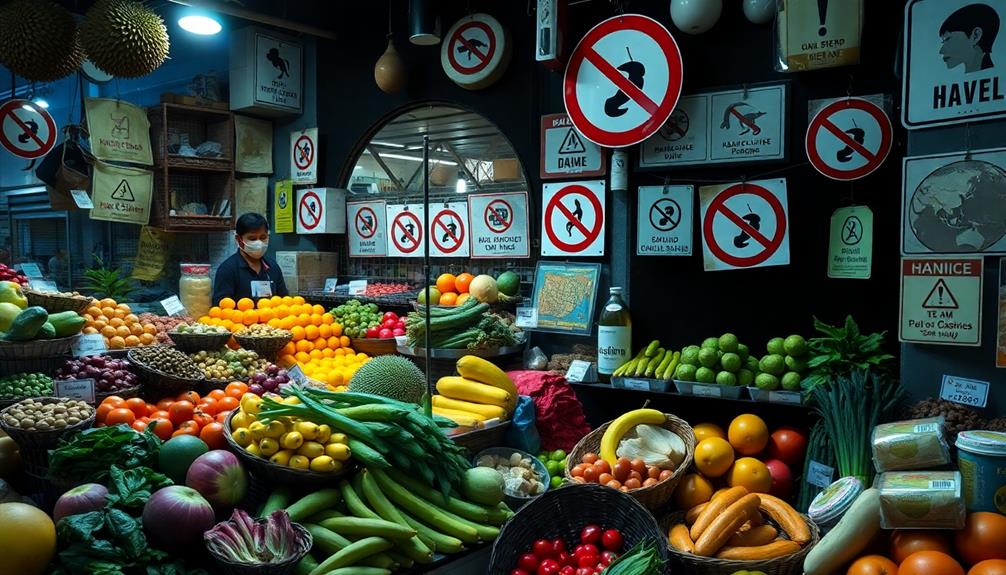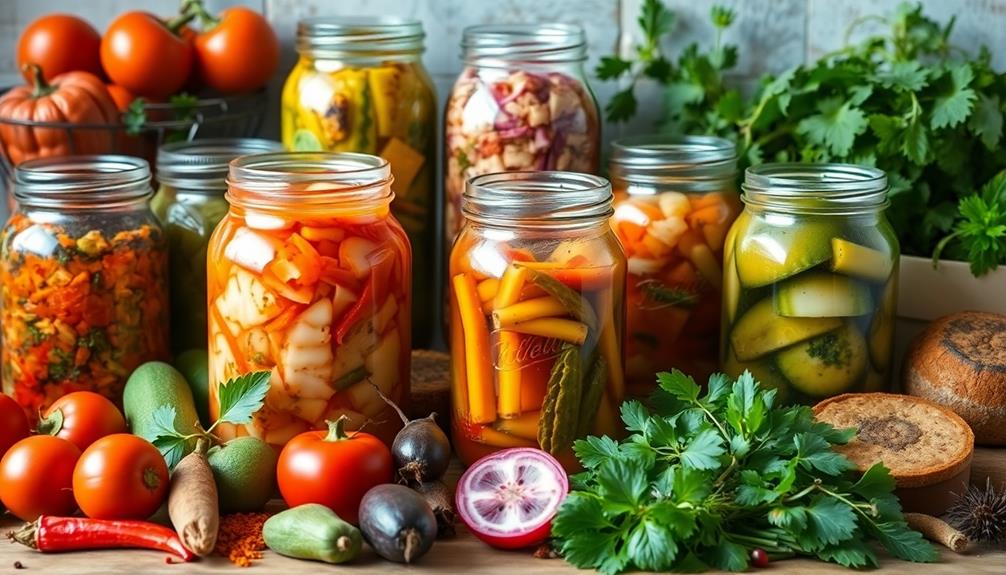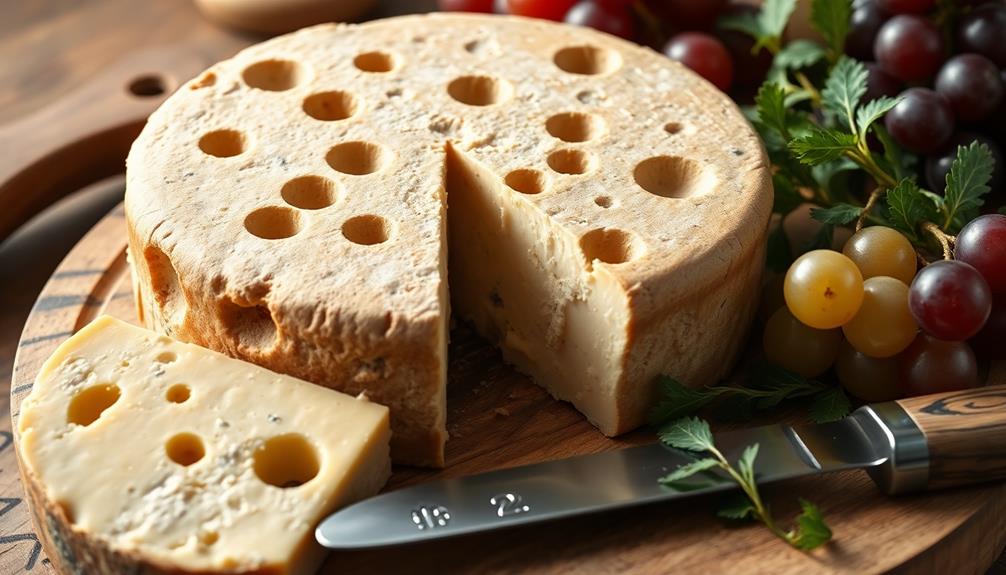Certain foods are banned in some countries to keep you and your family safe and healthy! Here's why:
- Health Risks: Some foods contain harmful additives linked to serious issues, like heart disease and hyperactivity.
- Public Safety: Countries often impose bans to protect everyone from these dangers.
- Cultural Practices: Different places have different ideas about what's healthy and safe to eat.
These efforts show how much countries care about their people's wellbeing. So, next time you wonder why something's off the shelf, remember it could be for your health! If you're curious about more banned foods, just stick around!
Key Takeaways
- Many foods are banned due to health risks associated with additives, such as artificial dyes and trans fats linked to hyperactivity and heart disease.
- Regulatory differences exist, with the EU enforcing stricter safety assessments and quicker bans compared to the more lenient FDA regulations in the U.S.
- Public health protection drives bans, aiming to safeguard consumers from harmful ingredients associated with serious health conditions like cancer.
- Consumer awareness of food additives is rising, prompting demand for natural, additive-free products and influencing manufacturers to reformulate recipes.
- Cultural dietary practices and ingredient valuation vary globally, impacting food regulations and the acceptance of certain food additives across different regions.
Overview of Banned Foods

Many foods that are staples in one country can be banned in another due to health and safety concerns. It's surprising to learn that some of your favorite snacks mightn't be allowed elsewhere!
For instance, certain cooking methods and ingredients used in traditional dishes like Red-Braised Pork Belly may face scrutiny in countries with strict food regulations.
Here's a quick overview of banned foods you might find interesting:
- Artificial Food Dyes: Bright colors in candies like Skittles are linked to health risks, making them banned in several countries.
- Trans Fats: Found in many baked goods, these fats can raise the risk of heart disease, leading to bans in places like Europe.
- Potassium Bromate: This dough-strengthening agent is banned in the UK and Canada because it may cause cancer.
- BHA and BHT: Common preservatives in processed foods, these additives are linked to cancer risk, so many countries keep them off the shelf.
- Chlorinated Chicken: This chicken treatment for safety is prohibited in the EU due to food safety concerns.
- rBGH in Dairy: Used in milk production, this growth hormone is banned in Canada and the EU over health risks to both animals and consumers.
Isn't it fascinating how food safety varies around the world?
Health Risks and Concerns
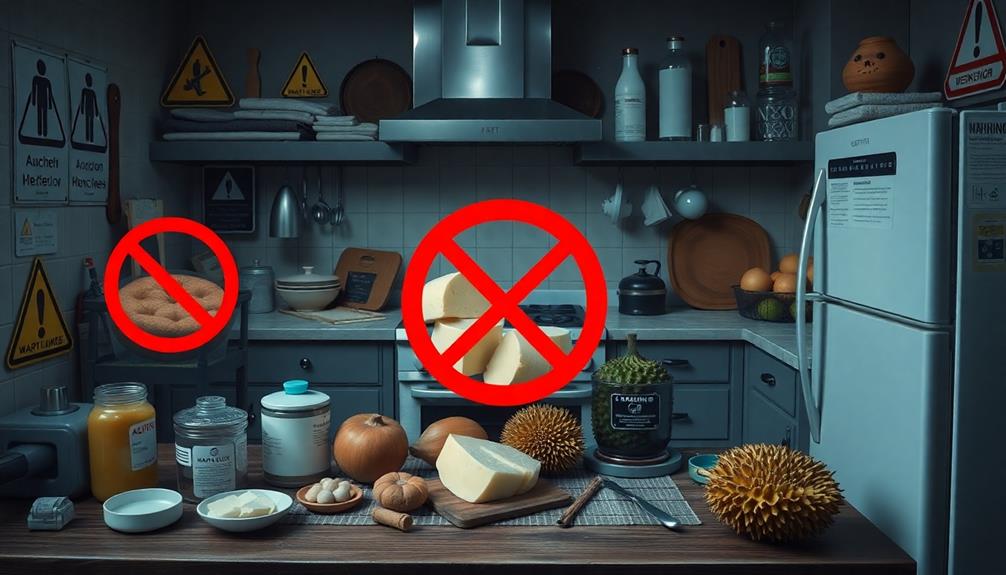
Health risks associated with certain foods can considerably impact your well-being. It's important to know what's in your food!
For example, titanium dioxide is often used to make candy and sauces look pretty, but it's banned in the EU because it might cause lung cancer. Yikes!
Similarly, traditional Ethiopian foods like tella and tej are often enjoyed during celebrations, but their fermentation processes can pose health risks if not done correctly, emphasizing the importance of safe food practices traditional Ethiopian beverages.
Brominated vegetable oil (BVO), found in your favorite citrus drinks, is also a no-go in many countries. It could affect thyroid health and might harm your nervous system.
Watch out for artificial food dyes like Yellow 5 and Red 40, which are linked to hyperactivity in kids and are banned in several European nations.
Don't forget about trans fats! You'll find these in some snacks and baked goods, and they're banned in many places due to their connection to heart disease.
Lastly, recombinant bovine somatotropin (rBST) is used in dairy production, but it's not allowed in Europe and Canada because of animal welfare concerns and possible links to cancers in humans.
Staying informed about these health concerns helps you make better choices for you and your family!
Regulatory Standards Comparison
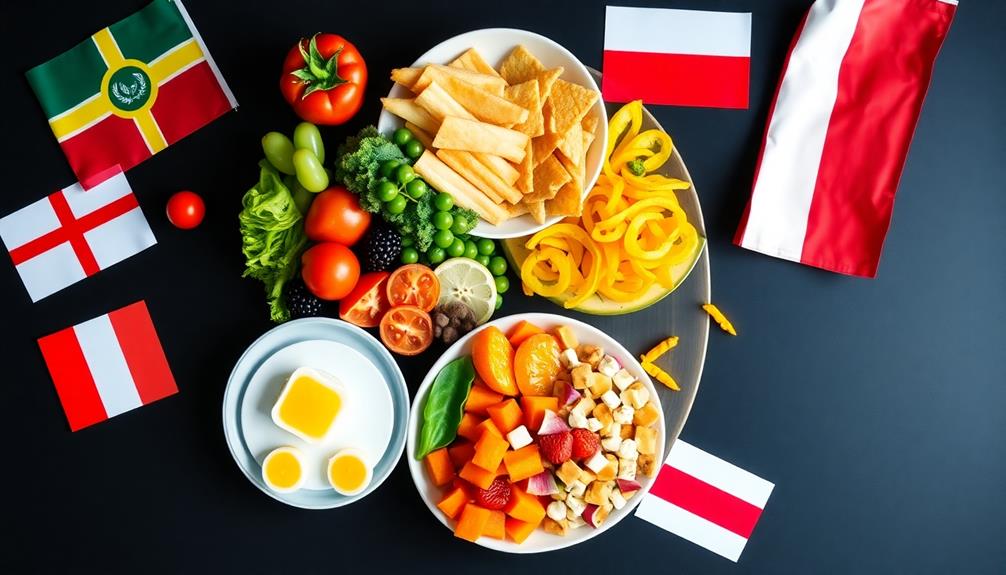
When it comes to food safety, the differences between U.S. and EU regulations can be striking. In the United States, the Food and Drug Administration (FDA) allows certain food additives that are considered "generally recognized as safe" or GRAS.
However, the European Union takes a different approach. They emphasize precautionary principles, leading to stricter bans on many additives. This cautious stance can be compared to traditional practices in cuisines like Japanese, where certain ingredients are valued for their health benefits, such as Umeboshi's digestive aid properties.
Here are some key points you should know:
- Safety Assessments: The EU requires thorough safety assessments and regular reviews of food additives. In contrast, the FDA often relies on data from the industry, which may not always guarantee your safety.
- Banned Additives: Many food additives that are banned in Europe, like potassium bromate and certain artificial colorings, are still legal in the U.S. This shows how each region views health effects differently.
- Consumer Protection: The European Food Safety Authority (EFSA) focuses heavily on protecting consumers, often leading to more bans compared to the U.S.
Understanding these differences helps you make informed choices about what you eat. After all, safety should always come first for you and your family!
Processed Foods and Additives
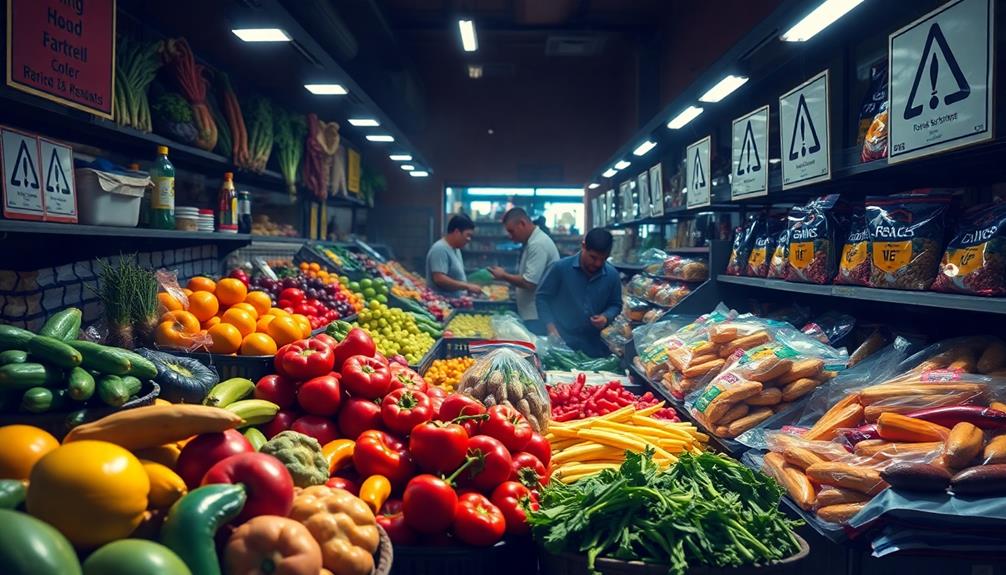
Let's take a closer look at some processed foods and the additives they might contain!
While these ingredients can make our snacks tasty, some aren't safe to eat everywhere, like in the U.S. versus other countries. For instance, certain food colorings and preservatives are banned in various nations due to health concerns.
It's surprising to see how different regulations are around the world, and it's important to know what goes into our food! Some countries have stringent labeling laws, while others are more lenient, leaving consumers with varying levels of transparency. Beyond health concerns, understanding these regulations can also shed light on broader issues like food waste and environmental impact. By being informed, we can make choices that not only benefit our well-being but also contribute to a more sustainable future.
Additionally, when considering snacks for events, you might want to explore alternatives like Halloween-themed treats that can be both fun and safe.
Health Risks of Additives
Diving into the world of processed foods reveals a troubling reality: many additives that enhance flavor, texture, or shelf life are linked to significant health risks. You might be surprised to learn that some of these food additives are banned in several countries because of their potential dangers. Here's a quick look at some common culprits:
| Additive | Health Risk | Banned In |
|---|---|---|
| Titanium Dioxide | Cancer, neurological damage | EU, Japan |
| Artificial Food Dyes | Hyperactivity in children | Multiple EU countries |
| Trans Fats | Higher risk of heart disease | Many parts of Europe |
| Growth Hormones (rBST) | Hormone-related health risks | EU, Canada |
These additives, like preservatives such as BHA and BHT, can pose serious health risks, leading to their ban in many regions. It is crucial to be aware of what goes into your food. Choosing fresh, whole foods can help you avoid these additives and keep your family healthier. So, next time you're at the store, take a moment to check those labels!
Regulatory Differences Worldwide
While food safety regulations vary greatly across the globe, understanding these differences is essential for consumers who want to make informed choices. Different countries have different rules about food additives, and that can affect your family's health and safety.
For instance, some countries may restrict certain ingredients that are commonly used in traditional dishes, such as regional variations in flavorings and preservatives in Brazilian cuisine.
Here are some key points to reflect on:
- European Countries adopt a more careful approach. They ban certain food additives like titanium dioxide and artificial dyes because of potential health risks.
- In contrast, the U.S. Food and Drug Administration (FDA) is slower to restrict these substances. For example, brominated vegetable oil (BVO) and trans fats are legal in the U.S. but banned in other countries.
- The U.S. doesn't regularly check the safety of older food additives, which can stay approved for a long time. Meanwhile, European countries have a review system to keep their food supply safe.
- Lobbying from the food industry in the U.S. can also delay bans on specific additives, while European regulations tend to be more strict.
Popular Banned American Snacks

Have you ever wondered why some of your favorite American snacks are banned in other countries? Snacks like Skittles and Little Debbie Swiss Rolls face restrictions due to health concerns tied to their ingredients, like artificial dyes and trans fats.
These snacks are often enjoyed during festive occasions, much like how Turkey Soup is a comforting dish made from holiday leftovers.
Let's explore what makes these treats popular here, and why safety regulations differ so much around the world!
Health Risks Associated
Many popular American snacks, like Skittles and Twinkies, pose significant health risks that have led to their bans in various countries.
These tasty treats often contain food additives and artificial dyes, which can cause some big concerns. For instance, Skittles are made with synthetic food dyes like Yellow 5 and Yellow 6, linked to hyperactivity in kids. That's why they're banned in places like Finland and Norway!
Additionally, many snacks lack the nutritional benefits found in wholesome meals like Mushroom Masala, which offers a rich blend of spices and is vegetarian-friendly.
Here are a few snacks you might want to think twice about:
- Pillsbury Biscuits: They include trans fats from partially hydrogenated soybean oil, raising heart disease risk.
- Little Debbie Swiss Rolls: Just like Twinkies, they use synthetic dyes that can lead to behavioral issues in children.
- Instant Mashed Potatoes: Often flavored with BHA, which may have carcinogenic properties, making them banned in the UK and Japan.
- Gatorade: Contains additives that need warning labels in the EU, but you'll find them widely consumed here.
With all these potential health risks, it's good to be informed about what's in your snacks! Enjoy them wisely!
Regulatory Differences Explained
Regulatory differences between countries can leave you surprised when you discover which popular American snacks are banned abroad. For instance, many beloved treats like Skittles and Twinkies can't be found in the European Union. Why? They contain artificial dyes like Yellow 5 and Red 40, which have been linked to hyperactivity in kids.
This focus on ingredient quality is similar to how traditional Italian dishes, such as Agnolotti, often prioritize fresh, wholesome ingredients over processed options.
Here are some other American foods banned in Europe:
- Instant mashed potatoes and Kraft Stove Top Stuffing: These contain BHA and BHT, preservatives that might be harmful to human health.
- Gatorade: This drink has food additives that need warning labels in Europe, showing their strict food safety rules.
- Pillsbury biscuits: These are off-limits due to partially hydrogenated oils, a type of trans fat linked to heart disease.
- Bagels and rolls: They can still have potassium bromate, which is banned in many countries but remains legal in the United States.
These ingredients that are banned reflect how different countries prioritize food safety.
Popularity vs. Safety
The allure of popular American snacks often masks serious safety concerns that lead to their ban in other countries. You might love munching on Skittles or enjoying Little Debbie Cakes, but did you know they contain artificial dyes like Yellow 5 and Red 40? These additives are banned in several places due to links to hyperactivity in kids.
Take a look at this table to see more popular snacks that face bans abroad:
| Snack | Banned Ingredient | Reason for Ban |
|---|---|---|
| Ritz Crackers | Partially hydrogenated oils | Linked to heart disease |
| Gatorade | Food additives | Health concerns |
| Frosted Flakes | BHT | Potential carcinogen |
| Instant Mashed Potatoes | BHA and BHT | Possible cancer risk |
While these snacks are popular in the U.S., their safety is questioned. It's important to know what's in our food products. So, next time you reach for a snack, consider checking the ingredients for your health!
Reasons Behind Food Bans

Across the globe, countries implement food bans primarily to safeguard public health and animal welfare. You might be surprised to learn that some common food items are banned because of serious health risks.
For instance, many food additives, like artificial dyes such as Yellow 5, Yellow 6, and Red 40, aren't allowed in the EU due to links to hyperactivity in kids. In Southern cooking, certain ingredients, such as heavily processed foods, can also raise health concerns, leading to discussions about traditional Southern dishes that focus on whole foods and fresh ingredients.
Trans fats, often found in tasty treats like Pillsbury biscuits, are banned in several European countries since they can increase heart disease risk. Likewise, potassium bromate, which helps make bread rise, is prohibited in the UK and Canada because of potential cancer links.
In dairy production, recombinant bovine growth hormone (rBGH) is banned in Europe and Canada due to animal welfare concerns and possible health risks for humans.
Finally, chlorinated chicken, a method used in the U.S. to kill germs, isn't allowed in the UK and EU because of hygiene issues with farming practices.
These bans help keep you and your family safe while enjoying delicious meals!
Consumer Awareness and Choices

In recent years, more consumers have become aware of the impact that food additives and processing methods can have on their health.
You've likely noticed that many shoppers are choosing products that are free from banned ingredients like artificial dyes and trans fats. This shift reflects a growing consumer awareness that encourages healthier eating habits.
For instance, embracing fresh, seasonal ingredients can lead to more nutritious meals, as seen in dishes like Nettle and Potato Soup, which showcases the benefits of using local produce.
Here are some exciting ways you can make smart food choices:
- Check Food Labels: Look for unrecognizable ingredients. If you can't pronounce it, consider passing on it!
- Choose Natural Foods: Opt for minimally processed options that keep you feeling good and energized.
- Ingredient Transparency: Seek brands that openly share what's in their products. This builds trust and helps you make informed decisions.
- Stay Informed: Learn about the differences in food safety regulations between countries. Understanding these can empower you to prioritize your health.
Global Food Safety Practices

How do global food safety practices differ from one country to another? When it comes to food safety, countries have their own rules about what's safe to eat.
In Europe, the European Food Safety Authority (EFSA) is super strict about food additives. They often ban things like artificial food dyes and trans fats, which might be harmful. On the other hand, the U.S. Food and Drug Administration (FDA) allows more of these additives because they want more proof before making a ban.
Here are some key differences:
- Precautionary Principle: The EU quickly bans anything that seems risky, while the U.S. waits for solid evidence.
- Ongoing Reviews: Countries like Japan and those in the EU regularly check food chemicals for safety, unlike the U.S., which doesn't reevaluate older additives.
- Consumer Advocacy: You, as a consumer, make a difference! Your demand for natural and additive-free products pushes manufacturers to change their recipes.
Understanding these differences helps you make better choices for your family's health. Enjoy safe and yummy food!
Frequently Asked Questions
Why Are Some Foods Illegal in Other Countries?
Some foods are illegal in other countries because they contain harmful additives, pose health risks, or violate safety regulations. You'll find that different nations prioritize health standards and consumer safety, leading to these bans.
Why Is US Milk Banned in Other Countries?
U.S. milk's often banned in other countries due to concerns about hormone treatments, antibiotic residues, and additives. Many consumers prefer hormone-free products, leading to stricter regulations and a rejection of American dairy in international markets.
Why Is Gatorade Banned in Europe?
Gatorade's banned in Europe due to its artificial food dyes and additives like brominated vegetable oil, which raise health concerns. The EU prioritizes consumer safety, leading to stricter regulations than what you find in the U.S.
Why Are Ritz Crackers Banned in Europe?
Imagine biting into a Ritz Cracker, only to find it banned across Europe. It's due to trans fats lurking in the ingredients, raising health concerns and prompting strict regulations that prioritize consumer safety over convenience.
Conclusion
To sum up, knowing why certain foods are banned can help you make smarter choices for your family. It's like looking both ways before crossing the street—you want to stay safe and healthy! By being aware of what's on your plate, you can enjoy tasty treats without worrying. So, let's celebrate our meals together while keeping an eye out for what's best for us. After all, food is more than just fuel; it's a way to share joy and love!

